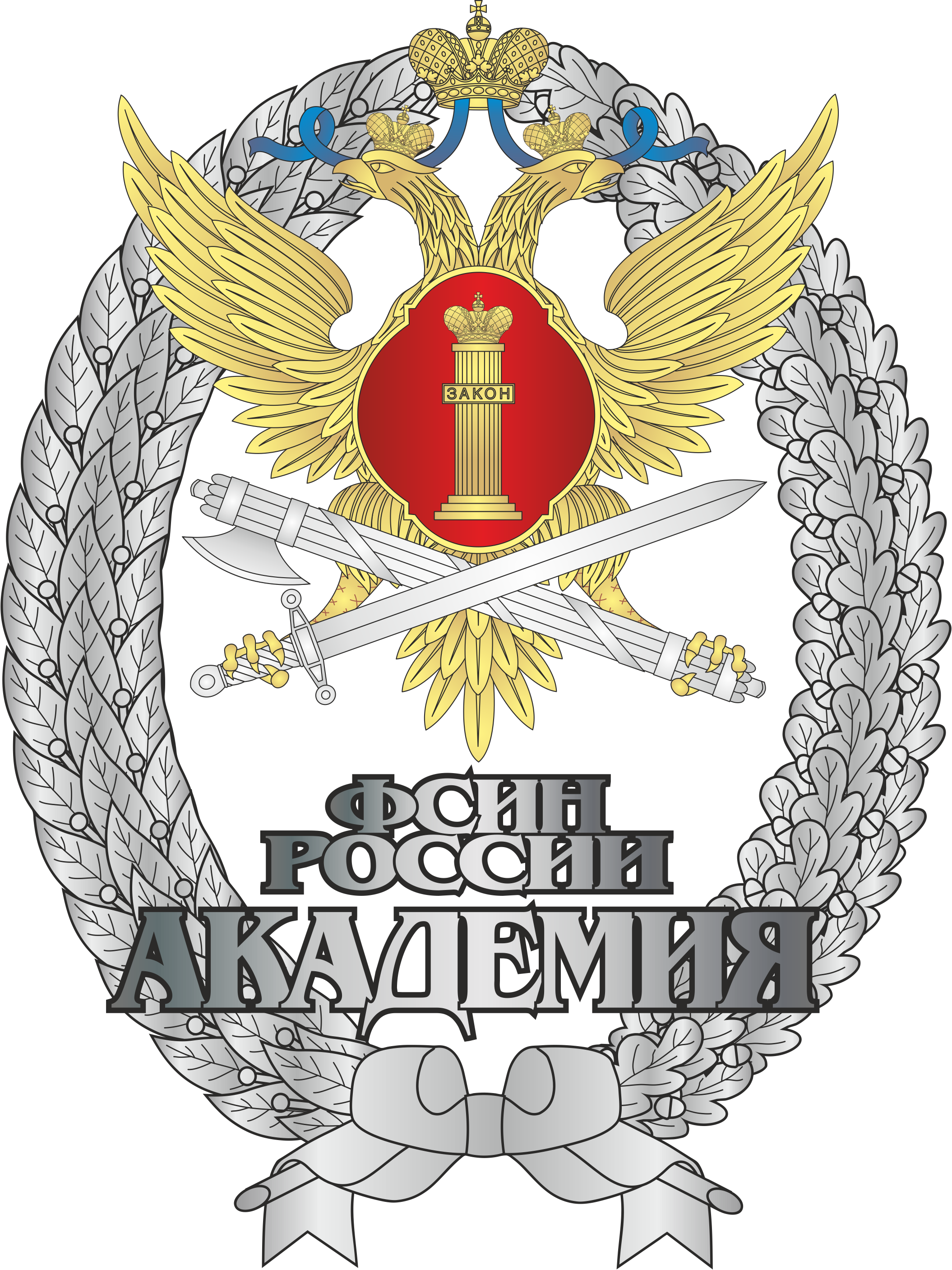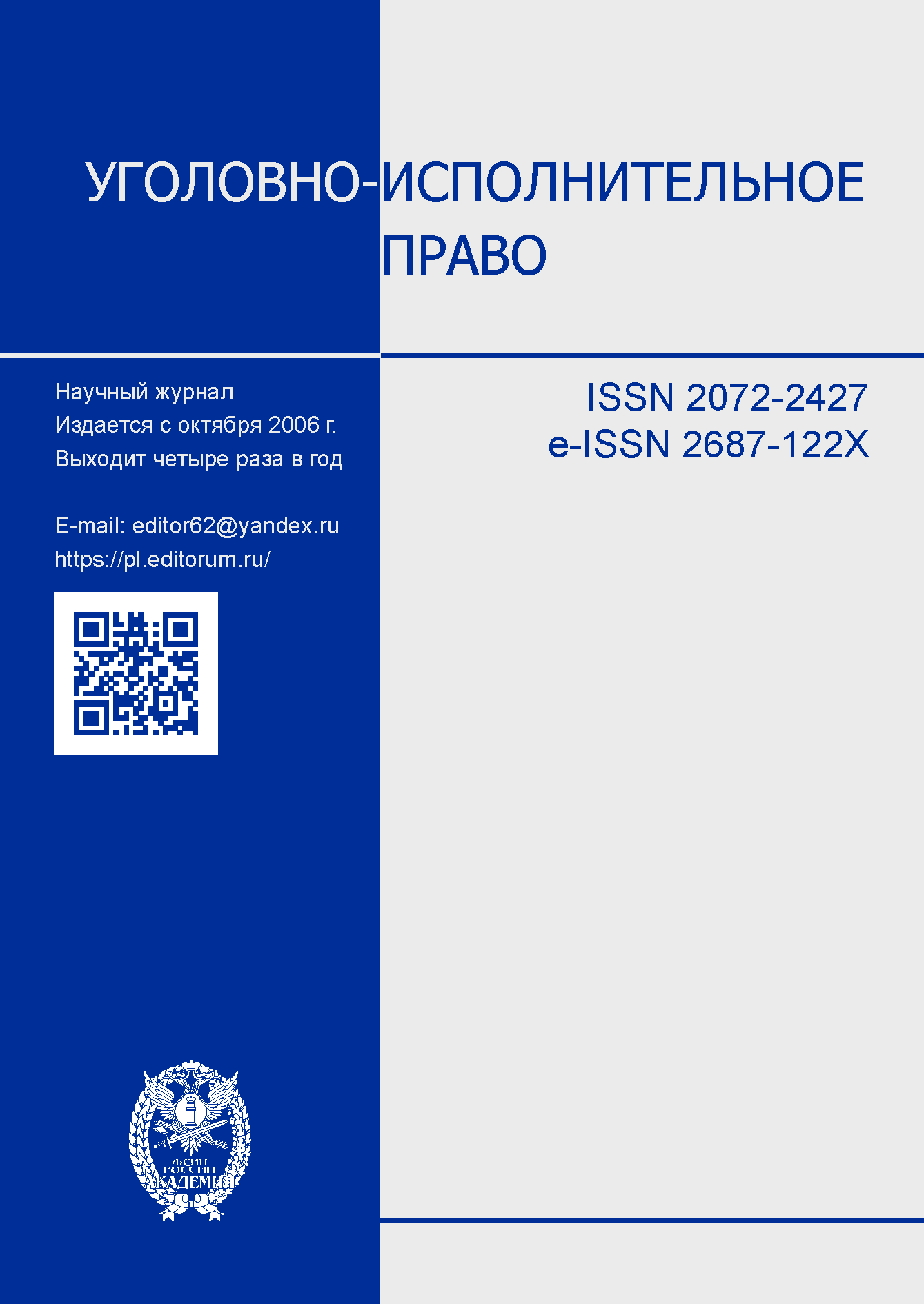UDC 34
Ensuring human rights and legitimate interests in Kazakhstan and Russia is a prior activity of the state. One of the most effective ways to encourage law-abiding behavior of convicts is to implement a progressive system of serving sentences. Unfortunately, the term “progressive system” is not used in the current Kazakh and Russian legislation. It is much more common in the literature than in normative legal acts.The article presents the author’s understanding of the progressive system and proposes its definition taking into account the positions of various scientists. The importance of effective implementation of the institutions of the progressive system for crime prevention both in isolation from society and after the release from punishment is considered.The key point in the application of progressive system institutions is to determine the degree of convicts’ correction. The generally recognized classification of convicts is given: positive convicts (those who have embarked on the path of correction, who have firmly embarked on the path of correction and proved their correction) and negative ones (those who have not embarked on the path of correction and petty violators of the regime). In this regard the author offers the idea of the criteria for correction of the convicts, classification of degrees of correction. Three classification groups are analyzed (those that have embarked on the path of correction, those that have firmly embarked on the path of correction, and those that have proved their correction). On the basis of this analysis the conclusion is made about the insufficiency of these criteria in modern conditions, that is, the need to differentiate the degree of correction of a large number of categories of convicts.
penal legislation, convicts, progressive system, convicts reformation
1. Avanesov G. A. Progressivnaya sistema otbyvaniya lisheniya svobody / pod red. N. A. Struchkova. M., 1970. 87 s
2. Astemirov Z. A. O suschnosti i kriteriyah ispravleniya osuzhdennyh // Voprosy ispravleniya i perevospitaniya zaklyuchennyh. Rostov n/D, 1966. S. 20-26
3. Bazhanov O. I. Progressivnaya sistema ispolneniya nakazaniya. Minsk, 1981. 167 s
4. Belyaev N. A. Celi nakazaniya i sredstva ih dostizheniya v ispravitel'no-trudovyh uchrezhdeniyah. L., 1963. 186 s
5. Brilliantov A. V. Differenciaciya nakazaniya i stepen' ispravleniya osuzhdennyh k lisheniyu svobody : monografiya. M., 1997. 130 s
6. Vasil'ev A. I. Pravovye osnovy primeneniya mer pooschreniya i vzyskaniya k osuzhdennym k lisheniyu svobody. Ryazan', 1982. 96 s
7. Mihlin A. S. Diskussionnye voprosy zameny neotbytoy chasti nakazaniya bolee myagkim // Problemy osvobozhdeniya osuzhdennyh ot otbyvaniya nakazaniya : sb. nauch. tr. / VNII MVD SSSR ; pod red. N. A. Struchkova. M., 1983. № 67. S. 30-35
8. Samaldykov M. Celi ugolovno-ispolnitel'nogo zakonodatel'stva Respubliki Kazahstan trebuyut kardinal'nogo izmeneniya // Femida. 2002. № 12. S. 30-34
9. Sinichkin A. A. Ocenka stepeni ispravleniya osuzhdennyh k lisheniyu svobody : avtoref. dis. … kand. yurid. nauk. Kazan', 2003. 28 s
10. Sundurov F. R. Social'no-psihologicheskie i pravovye aspekty ispravleniya i perevospitaniya pravonarushiteley. Kazan', 1976. 215 s
11. Tkachevskiy Yu. M. Osvobozhdenie ot otbyvaniya nakazaniy po deystvuyuschemu sovetskomu ugolovnomu pravu : avtoref. dis. … d-ra yurid. nauk. M., 1965. 36 s
12. Chukmaitov D. S. Teoreticheskie osnovy sistemy ispolneniya nakazaniy po zakonodatel'stvu Respubliki Kazahstan : monografiya. Almaty, 1999. 342 s











